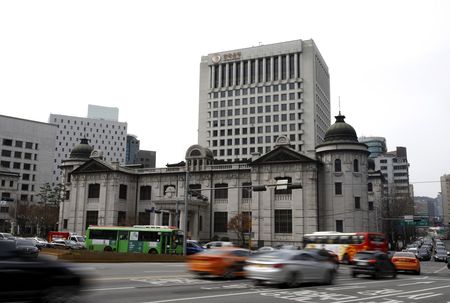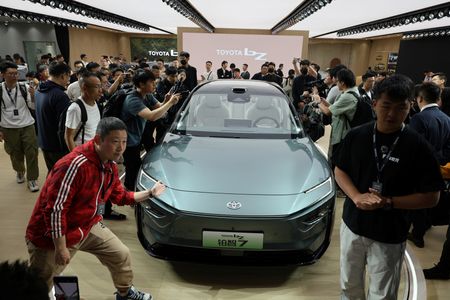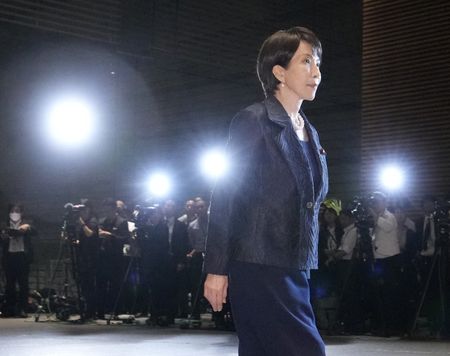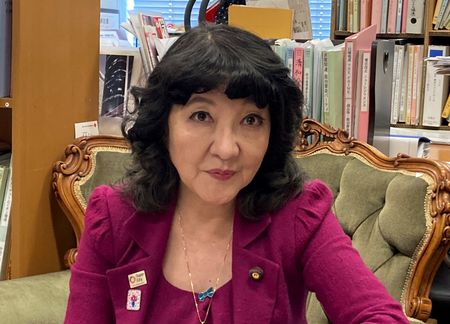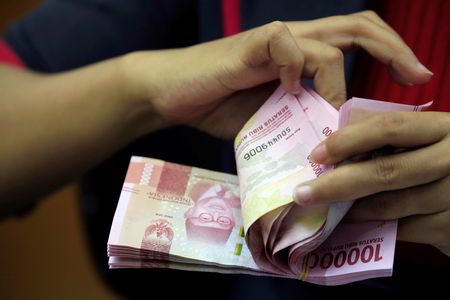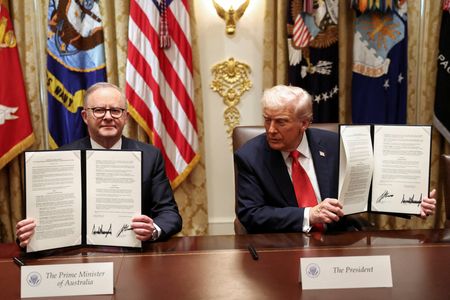By Veronica Dudei Maia Khongwir
BENGALURU (Reuters) -South Korea’s central bank will keep its key interest rate unchanged for a third consecutive meeting on Thursday, prioritising economic stability over a recovery in growth, according to a Reuters poll of economists who expect the next rate cut in November.
The Bank of Korea (BOK) raised concerns at its previous meeting about risks to financial stability amid an overheated housing market and uncertainty over a trade deal with the United States, which is likely to be finalised at the end of this month, prompting the central bank to remain on hold for now.
Nearly 95% of economists, 33 of 35, polled October 14-20 forecast the BOK would hold its base rate at 2.50% on October 23. Two predicted a 25-basis-point cut to 2.25%.
“It’s unlikely for the BOK to move in October because the fundamentals, both economic and the housing market, haven’t changed since August and more importantly the household debt issue Korea faces at the moment is not seen slowing down,” Kelvin Lam, senior economist at Pantheon Macroeconomics, said.
“The BOK will watch the housing market closely to make sure it is not going to be rising much further before it starts to cut rates again. I think one in November is a potential.”
After cumulative rate cuts of 100 bps over the past year, house prices have started to rebound, worsening affordability. The price-to-income ratio of an apartment in Seoul sits at 21.3, above 19.4 for London, heightening concerns in a country with one of the world’s highest household debt-to-GDP ratios.
With growth underperforming due to weak domestic demand and inflation around the BOK’s 2% target, a strong majority of economists predict a 25-bps cut to 2.25% in November.
The central bank is expected to tread cautiously to avoid further depreciation of the currency as Washington has agreed to reduce duties on imports of South Korean products to 15% in return for Seoul investing $350 billion in the U.S.
But U.S. auto tariffs are still in place as the countries remain at odds over the details of the investments.
“There is a lot of pushback and there are also people arguing it’s better off paying the tariffs than to agree to the investment deal. At the end of the day it’s about how the deal is going to be structured,” Michelle Lam, economist at Societe Generale, said.
“Going forward, I think the investment deal is definitely affecting the sentiment about the Korean won. So how that’s going to be executed is still going to be quite important.”
The Korean won has lost around 2% since the deal was announced on July 30 and the BOK sold a net $800 million in currency market interventions in the second quarter to curb losses.
Beyond this year, economists were split on the rate outlook. The median forecast showed another 25-bps cut to 2.00% in the second quarter of next year and then no change through 2026, a shift from a first-quarter cut expected in the August poll.
The poll showed Korea’s economy would expand 1.0% in 2025, slightly above the BOK’s revised forecast of 0.9%, 1.8% in 2026 and 1.9% in 2027.
Inflation was forecast to average 2.0% this year and ease slightly to 1.8% in 2026.
(Other stories from the October Reuters global economic poll)
(Reporting by Veronica Khongwir; Polling by Vijayalakshmi Srinivasan and Devayani Sathyan in BENGALURU and Jihoon Lee in SEOUL)

